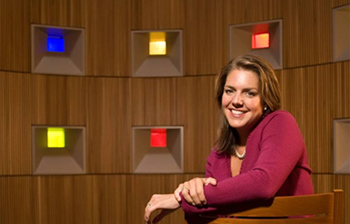With more than a million employees and an operating budget of more than $100 billion, the Catholic Church in the United States rivals some of the largest companies on the Fortune 500. Through its parishes, missions, hospitals and schools, it directly affects the lives of not just the nation’s 68 million Catholics but also tens of millions of other Americans.
Yet when members of the National Leadership Roundtable on Church Management began scanning the Catholic landscape in America more than five years ago, they saw an organization lacking in modern management practices.
As Frederick Gluck, a former managing partner of McKinsey & Company and a Roundtable board member, wrote in 2004, the U.S. Catholic Church is an organization as large as Walmart that operates by a “feudal model of governance and management.”
The Roundtable now has numerous proposals to help bring modern management to the church. It’s developing a coordinated procurement effort that could save billions in purchasing costs every year. It has created Catholic Leadership 360, an assessment tool to give priests feedback to help in their professional development. Together with Seton Hall University, it has created a “pastors toolbox,” a training program to give new pastors basic management skills.
But none of their efforts, members say, have been as important and as foundational as the Standards for Excellence.
“The Standards for Excellence are a seminal document, undergirding everything we do,” said Kerry Robinson, the Roundtable’s executive director.
One of the Roundtable’s first initiatives, the Standards for Excellence set out 55 specific benchmarks for how well-managed, ethical and accountable parishes, dioceses and nonprofits should operate. The standards are organized under eight broad guiding principles in such areas as mission statements, governance, conflict of interest, human resources and finances.
The Roundtable approaches its work by first identifying needs and then scanning the horizon for resources, looking for existing programs or projects and adapting them to meet the church’s needs.
For the standards, they found a ready-made model at the Maryland Association of Nonprofit Organizations. With support from the Carnegie Corporation of New York, the Maryland organization had created the Standards for Excellence Institute to promulgate standards for nonprofits in that state. Geoffrey Boisi, the Roundtable’s chair, serves on the Carnegie board. He knew of that work and thought it could be easily adapted.
So, with the assistance of canon lawyers, the Roundtable took those standards and “churchified” them, said Thomas J. Healey, a Roundtable board member who gave an update on the standards at the Roundtable’s annual meeting. That process illustrates the essence of much of the Roundtable’s work, Healey said: taking things that work in the business sector and adjusting them to fit the church.
“The Standards for Excellence are phenomenal,” said Robinson. “They create a culture of ethics, accountability, openness and confidence in leadership. And they give parishioners and other donors assurance that their dollars are well spent.”
Checks and balances
In many ways, the standards are basic, common-sense norms for how any business or organization should operate, Healey said.
For example, the standards recommend that parish finance councils have written management policies that are reviewed and updated periodically. Parishes should have overall compensation structures and written conflict-of-interest policies that apply to clergy, laity, council members and volunteers. Parishes should have written personnel policies setting out basic elements of employment, working conditions, pay and evaluation procedures, and written job descriptions for each employee. Every parish should operate with an annual budget, with timely financial reports issued quarterly and annual audits for parishes with budgets over $300,000.
You won’t find the standards in the Catholic catechism, and theologians would likely find them mundane. But Roundtable members believe the Standards for Excellence and similar efforts are vital to the church’s ministry, a preventive to the kinds of abuses that have occurred in recent years.
“If every organization scrupulously followed the Standards for Excellence, you would never have, because of checks and balances, a sex scandal or conflicts of interest or instances of financial mismanagement,” Boisi said. “If you follow the standards, you will have a successful organization.”
The standards have been adopted so far by six dioceses accounting for 279 parishes. Another 27 parishes in 17 dioceses have also adopted them, along with 15 Catholic nonprofits. With 195 dioceses and archdioceses in the United States -- and 19,000 parishes -- the Roundtable is just beginning its efforts to implement the standards, but this is a good start, members say. The Roundtable’s goal is to have the standards implemented in every diocese and parish in the country.
Good management is Christian
In the Diocese of Gary, Ind., where the standards were piloted in 2007, Bishop Dale Melczek said they are making a real difference. Parishes in the Gary diocese, Melczek said, have always taken seriously their mission to carry out the work of Jesus, proclaiming the good news and reaching out to those in need. But the standards have added another dimension to that work.
“It’s brought a new enthusiasm to do ministry in a more orderly, accountable and transparent fashion,” he said. “There is a greater sharing of information with the people in the pew about how we’re going about our mission.”
Laity who serve on parish councils and commissions are more excited about their work, because they see a more open and transparent church that is not “moving from crisis to crisis” but operating in an orderly manner, with planning, goals and objectives, Melczek said.
In a case study of the implementation process in Gary, researchers at the University of Notre Dame found that the standards had established a much-needed common ground for operations throughout the diocese and were already contributing to improved practices. A survey found increased attention across the diocese in all eight areas addressed by the standards, with significant change in five of the eight.
One pastor told the researchers that the Standards for Excellence had provided more clarity, structure and understanding and had made him realize that many of his assumptions about management operations were wrong. “It’s brought to light that we were in the dark,” he said.
Melczek said that Christianity and excellence in church administration are not mutually exclusive. People who are in leadership positions have an obligation to exercise their leadership in a very transparent, principled and accountable way, he said.
One participant in the Notre Dame study reached much the same conclusion, explicitly connecting the Catholic faith and the values and virtues embodied in the standards. That connection goes to the very heart of the Standards for Excellence, the researchers concluded: “The standards are a valuable tool, a guidepost in our lifelong and larger endeavor -- the ultimate call to be faithful to Jesus.”























